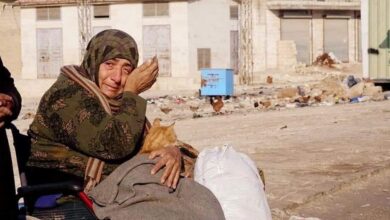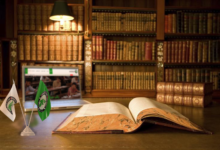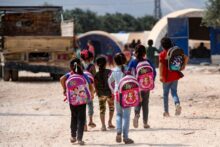Four Health Tips for Ramadan

Ramadan arrives as the Syrian people suffer from the ravages of poverty, inflation, and the ongoing war. This situation has already forced many Syrians to fast even before Ramadan in camps of need, carrying much misery as well as dignity and honor. However, it is essential to build a health culture through general awareness. No matter the suffering, our people will not fall short in seizing the means of life. Just as we have freedom fighters who love death in defense of the oppressed, we have a nation that loves life and is capable of rebuilding Syria because of its culture that does not bend to hardships, turning challenges into a ladder towards construction.
Medical advice:
There’s no doubt that medical advice is abundant during Ramadan, but here we consider the Syrian reality and our knowledge of it to offer some health guidelines we see as crucial for our Syrian people.
1- Syrians fast for approximately 13 hours without food or drink, putting the body in full alert to use its sugar reserves. Fasting is one of the reasons for reduced blood sugar levels. However, some people start either with a cigarette or by eating large amounts of food at once to satisfy hunger at the first call of the Adhan, leading to an imbalance in the body’s health. So, what should be done?
The correct approach is to eat gradually, starting with water and juices to hydrate the body and help the kidneys function well, followed by a few dates in accordance with the Prophet’s Sunnah (peace be upon him), then perform the Maghrib prayer. It would be beneficial to promote the culture of gathering for the Maghrib prayer in mosques to strengthen social relationships, potentially leading to communal iftar where everyone brings a simple dish. After Maghrib prayer (about fifteen minutes later), the stomach is ready for iftar, balancing blood sugar levels and reducing feelings of hunger and thirst. It also helps avoid feeling hungry after being full and prevents bloating harmful to the colon and leading to constipation.
2- Despite the dire economic reality, it’s crucial to pay attention to the quality of food at iftar. Not all food benefits the body, which is a trust from God to us, requiring preservation. At the very least, essential nutrients should be available on the table for both Suhoor and Iftar, with iftar components divided into a third of vegetables and fruits, a third of carbohydrates (rice or whole grain bread), and a third of proteins (fish, chicken, or lean meat, with alternatives like legumes, eggs, and dairy). It’s also important to avoid fatty, fried, and salty foods as much as possible, limiting sweets and remembering that excessive salt intake leads to thirst during fasting. It’s crucial to emphasize constantly drinking fluids (at least eight large glasses) of water daily, as sweetened beverages increase stomach gases and quickly raise blood sugar levels, followed by a rapid drop that triggers hunger. It’s worth mentioning the examples provided by the World Health Organization for meals Suhoor and Iftar for pregnant and nursing women during Ramadan:
For Suhoor, it recommends eating a boiled or scrambled egg with vegetables, cheese or labneh with oil and thyme, two pieces of bread, two types of vegetables, drinking tea or herbs, and ensuring a sufficient intake of water.
For Iftar, pregnant women are advised to eat fresh vegetable soup (not pre-made), oven-baked chicken breasts if possible, but it’s crucial to consume vegetables that can be stuffed like grape leaves, zucchini, and eggplant, along with green salad or vegetables.
It’s also preferred not to lie on the back or go to sleep immediately after Iftar or Suhoor to avoid gastroesophageal reflux and heartburn, especially important for those with a hiatal hernia.
3- Sufficient sleep in Ramadan and time management despite poor living conditions to allow the body to rest for an average of eight hours, a minimum of six hours, and a maximum of nine hours, and avoiding smoking.
4- Lastly, paying attention to the psychological aspect, as all Syrians live under significant life pressures – displacement, war, financial and health problems, and more that could crush a mountain. Thus, the human spirit must not be weak, or it may succumb to depression and a spiral that could lead to loss of hope, and in some cases, suicidal thoughts or actions. Therefore, it’s imperative to foster a strong spirit based on a solid fortress, the best of which is faith. Through religious behavior and using Ramadan for reading and reflecting on the Qur’an, praying, and praising, we cultivate a connection with Allah, revitalizing the soul’s confidence that everything is in God’s hands. The best advice here might be from a sage asked how to avoid what he feared from fate’s arrows. He replied: “Be by the side of the archer, and you shall be safe.”
Wishing you an accepted fast, healthy iftar and Suhoor, and relief for our people and country.
Dr. Ahmad Al-Agha
Family Office
Syrian Future Movement





